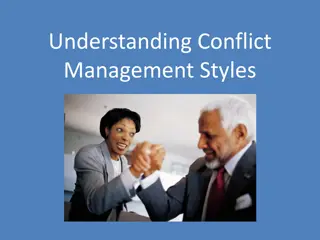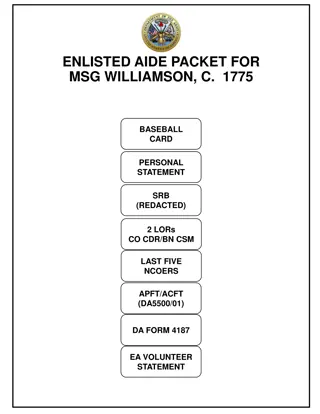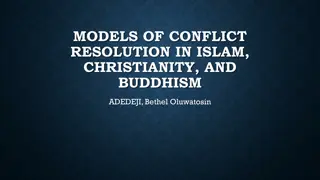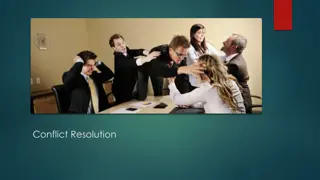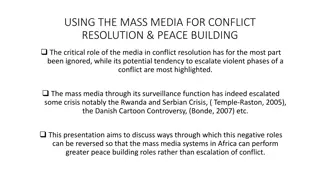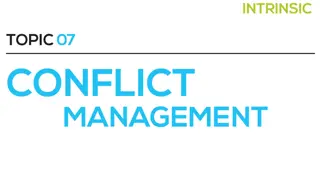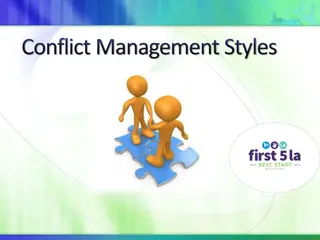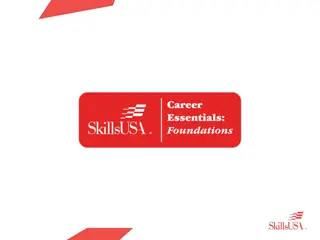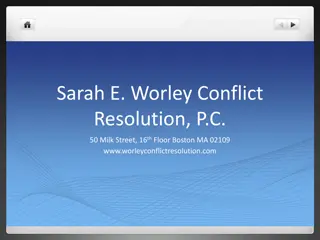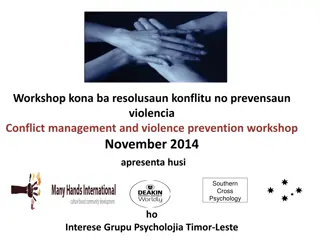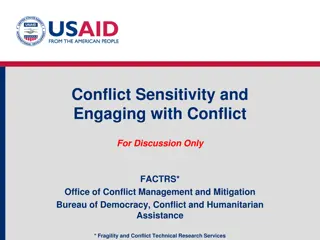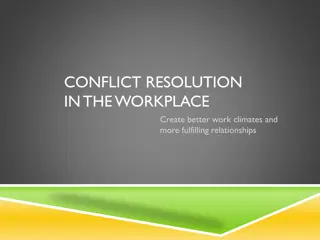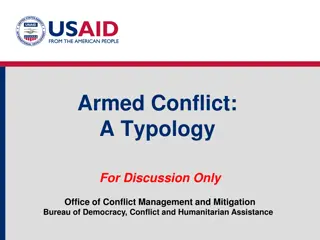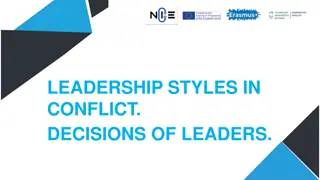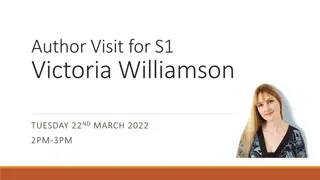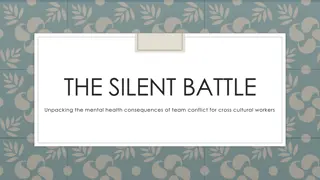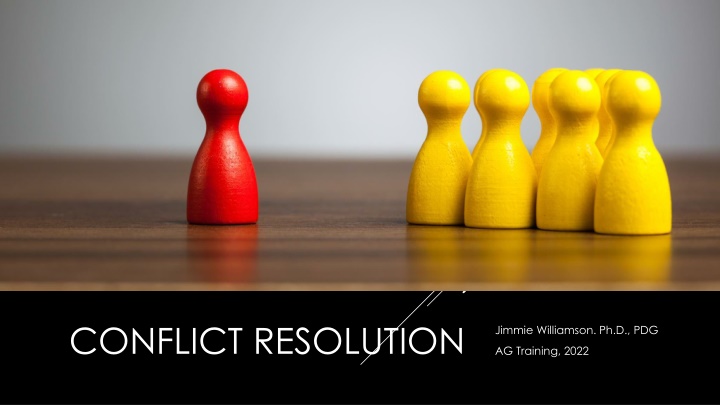
Effective Conflict Resolution Strategies: Definitions, Styles, and Benefits
Explore definitions of conflict, various conflict management styles, and beneficial behaviors and skills for resolving conflicts effectively. Learn how to stay calm, manage emotions, and navigate conflicts constructively.
Download Presentation

Please find below an Image/Link to download the presentation.
The content on the website is provided AS IS for your information and personal use only. It may not be sold, licensed, or shared on other websites without obtaining consent from the author. If you encounter any issues during the download, it is possible that the publisher has removed the file from their server.
You are allowed to download the files provided on this website for personal or commercial use, subject to the condition that they are used lawfully. All files are the property of their respective owners.
The content on the website is provided AS IS for your information and personal use only. It may not be sold, licensed, or shared on other websites without obtaining consent from the author.
E N D
Presentation Transcript
CONFLICT RESOLUTION Jimmie Williamson. Ph.D., PDG AG Training, 2022
Examples of Conflict? What is your definition of Conflict? CONFLICT
A few definitions of conflict: A state of disagreement or argument between people, groups, or countries A situation in which you have to choose between two or more needs or influences A disagreement in which the parties involved perceive a threat to their needs, interests, or concerns
What's your style? Whether or not you do it consciously, you probably already manage conflict. Kenneth W. Thomas and Ralph H. Kilmann identified five styles of conflict management. Most people regularly use one or two of these styles:
Accommodating is unassertive and cooperative. The person neglects their own concerns to satisfy the concerns of the other person. Avoiding is unassertive and uncooperative. The person pursues neither their own concerns nor those of others. They simply don't deal with the conflict. Collaborating is assertive and cooperative. The parties attempt to work together to find a solution that satisfies everyone's concerns
Competing is assertive and uncooperative. A person pursues their own concerns without regard for others' concerns. The person may use their position of power to get their way. Compromising is moderate in both assertiveness and cooperativeness. The objective is to find some mutually acceptable solution that partially satisfies all parties.
What types of behaviors and skills do you think are beneficial in resolving conflict?
Staying calm. Tension and anger can escalate the problem. Think of strategies that can help you stay calm, such as breathing deeply or stepping away for a minute.
Managing your emotions. Are you tired or stressed about things that aren't related to the conflict? Are you irritated by certain words or types of body language? Be aware of how your emotions can negatively affect your responses.
Listening. Don't assume that you know what the other person is upset about. Listen to what they say, and ask questions to understand their perspective better. You may still disagree, but you'll be better equipped to find a resolution that works for both of you
Speaking up. Others can't read your mind. Be clear and specific about what's bothering you.
Focusing on the problem, not the person. Don't criticize the other person. It can be helpful to use "I" statements to express your perspective. For example, rather than saying, "You still haven't repaid me for the loan," say "I feel stress because I thought I would be repaid by now."
Thinking about the present and the future, not the past. You can't change what has already happened. Instead, think about how to make the relationship more positive and how to avoid similar situations in the future.
Being aware of nonverbal communication. Pay close attention to body language, such as gestures, facial expressions, tone of voice, and posture.



